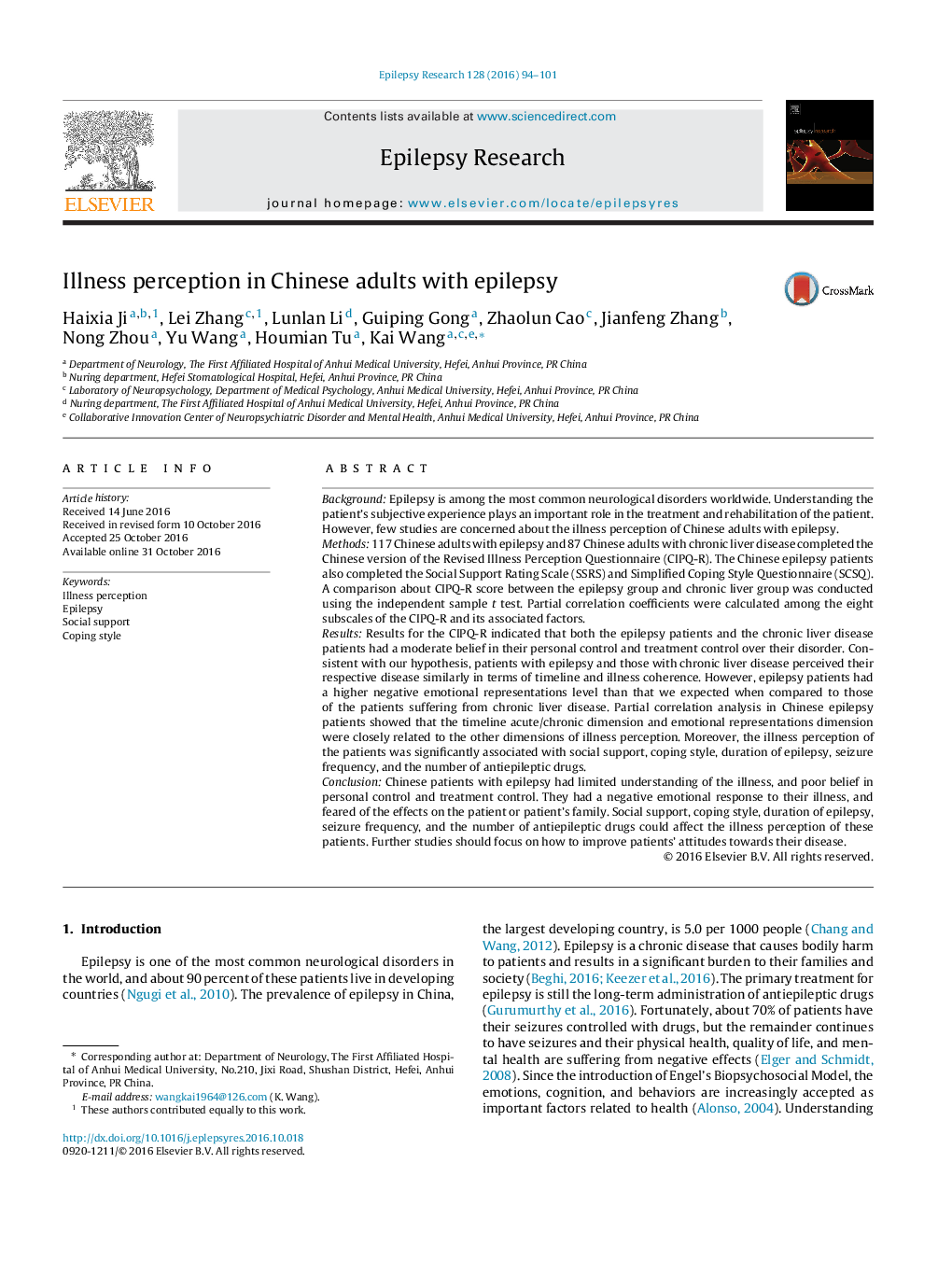| کد مقاله | کد نشریه | سال انتشار | مقاله انگلیسی | نسخه تمام متن |
|---|---|---|---|---|
| 5628624 | 1579895 | 2016 | 8 صفحه PDF | دانلود رایگان |
- Firstly, we are the first group to conduct the research on illness perception of Chinese epilepsy patients.
- Secondly, we found that epilepsy patients had a higher negative emotional representations level than that we expected.
- Thirdly, we found that possible interactions may exist between illness perception and coping styles.
- Fourthly, duration of epilepsy, seizure frequency, and the number of antiepileptic drugs could affect the illness perception of epilepsy patients.
BackgroundEpilepsy is among the most common neurological disorders worldwide. Understanding the patient's subjective experience plays an important role in the treatment and rehabilitation of the patient. However, few studies are concerned about the illness perception of Chinese adults with epilepsy.Methods117 Chinese adults with epilepsy and 87 Chinese adults with chronic liver disease completed the Chinese version of the Revised Illness Perception Questionnaire (CIPQ-R). The Chinese epilepsy patients also completed the Social Support Rating Scale (SSRS) and Simplified Coping Style Questionnaire (SCSQ). A comparison about CIPQ-R score between the epilepsy group and chronic liver group was conducted using the independent sample t test. Partial correlation coefficients were calculated among the eight subscales of the CIPQ-R and its associated factors.ResultsResults for the CIPQ-R indicated that both the epilepsy patients and the chronic liver disease patients had a moderate belief in their personal control and treatment control over their disorder. Consistent with our hypothesis, patients with epilepsy and those with chronic liver disease perceived their respective disease similarly in terms of timeline and illness coherence. However, epilepsy patients had a higher negative emotional representations level than that we expected when compared to those of the patients suffering from chronic liver disease. Partial correlation analysis in Chinese epilepsy patients showed that the timeline acute/chronic dimension and emotional representations dimension were closely related to the other dimensions of illness perception. Moreover, the illness perception of the patients was significantly associated with social support, coping style, duration of epilepsy, seizure frequency, and the number of antiepileptic drugs.ConclusionChinese patients with epilepsy had limited understanding of the illness, and poor belief in personal control and treatment control. They had a negative emotional response to their illness, and feared of the effects on the patient or patient's family. Social support, coping style, duration of epilepsy, seizure frequency, and the number of antiepileptic drugs could affect the illness perception of these patients. Further studies should focus on how to improve patients' attitudes towards their disease.
Journal: Epilepsy Research - Volume 128, December 2016, Pages 94-101
